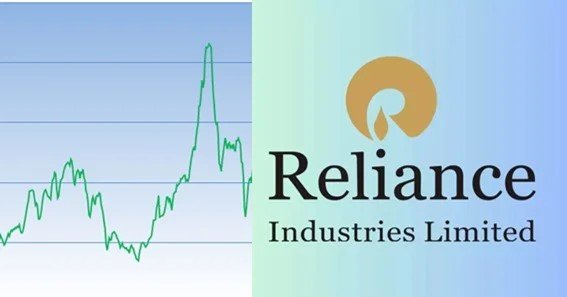Reliance Industries is one of the largest and most influential companies in India, with significant operations across sectors such as energy, telecommunications, and retail. As a major player in the stock market, many investors frequently ask, “is Reliance share overvalued?” Understanding the true market value of Reliance shares requires an in-depth analysis of its stock performance, valuation, and the factors influencing its price. In this article, we’ll examine whether Reliance shares are overpriced, look into their intrinsic value, and explore market predictions.
Is Reliance Share Overvalued?
The question “is Reliance share overvalued” is a common one, particularly when its stock price reaches new highs. Some investors argue that the stock’s current price does not fully align with the company’s intrinsic value, while others believe its growth potential justifies the high valuation. To assess whether Reliance stock valuation is justified, it’s essential to look at several key factors, including earnings, market sentiment, and future growth prospects.
Reliance Stock Valuation and Price Analysis
When examining Reliance stock valuation, it’s important to evaluate metrics such as the price-to-earnings (P/E) ratio, earnings per share (EPS), and revenue growth. A high P/E ratio can sometimes indicate that a stock is overpriced, signaling a potential overvaluation of Reliance shares. However, it could also reflect investor confidence in the company’s future prospects.
In a recent Reliance share price analysis, the stock has continued to perform well, driven by its expanding telecom and retail businesses. However, this rapid rise in stock price has led to concerns about whether the Reliance stock market value accurately reflects its real worth.
Factors Affecting Reliance Share Price
Several factors impact the Reliance share price and its valuation in the market:
- Business Diversification: Reliance’s ventures in Jio (telecom) and retail have brought substantial revenue, contributing to its high market valuation. However, these sectors also bring volatility, which can affect the stock price.
- Global Energy Markets: Reliance’s core business in energy and petrochemicals is highly sensitive to fluctuations in oil prices and global demand. This can lead to swings in stock valuation.
- Investor Sentiment: Strong positive sentiment around Reliance’s growth potential, particularly in digital services, has contributed to its high valuation.
- Earnings Growth: The company’s earnings growth has supported a rising share price, but questions remain whether these earnings justify the current market value.
Reliance Industries Stock Performance
The Reliance Industries stock performance has been remarkable over the past few years, with the company becoming one of the most valuable firms globally. However, as the share price continues to rise, investors may wonder if Reliance stock is overpriced. High valuations, while appealing in a booming market, can lead to corrections if growth expectations aren’t met.
Reliance Industries share valuation concerns have been raised by analysts who question whether the company’s earnings and revenue growth can keep pace with the rising stock price. While the company’s fundamentals remain strong, understanding whether the stock is overvalued requires a balanced look at both its recent performance and future outlook.
Market Outlook for Reliance Shares
The market outlook for Reliance shares remains cautiously optimistic, with analysts predicting continued growth in its telecom and retail divisions. However, the stock’s performance will largely depend on the company’s ability to maintain growth in earnings and navigate challenges in its core energy business.
Looking at Reliance stock intrinsic value, it is possible that the current share price might exceed the company’s actual worth based on its underlying assets and profitability. This raises the question of whether Reliance stock is overpriced and if a market correction could occur in the near future.
FAQ
1. Is Reliance share overvalued?
Many analysts believe that Reliance’s share price may be overvalued based on traditional valuation metrics like the P/E ratio, but others argue that its growth potential justifies the high valuation.
2. What are the main factors affecting Reliance share price?
Key factors include its business diversification, global energy market fluctuations, investor sentiment, and the company’s earnings growth.
3. Is Reliance stock overpriced compared to its intrinsic value?
There are concerns that the stock’s current market value may exceed its intrinsic value, especially if growth expectations aren’t met.
4. What is the average lifespan of Reliance’s high valuations?
Reliance has sustained high valuations in the market for several years, but any significant slowdown in its earnings growth or performance in key sectors could lead to a market correction.
5. What is the market outlook for Reliance shares?
The market outlook remains cautiously optimistic, though the stock’s future performance will depend on the company’s ability to meet growth expectations.
Conclusion
So, is Reliance share overvalued? While there are valid concerns about its high valuation, Reliance’s strong performance and growth potential cannot be ignored. Investors should carefully analyze the company’s fundamentals and market trends before making decisions, keeping in mind the factors that could affect the stock’s future performance. Whether Reliance is currently overpriced or not, it remains a crucial player in the market, with both risks and opportunities for investors.
Disclaimer: This article is for informational purposes only and should not be taken as financial advice. Always consult a financial advisor for investment decisions.










